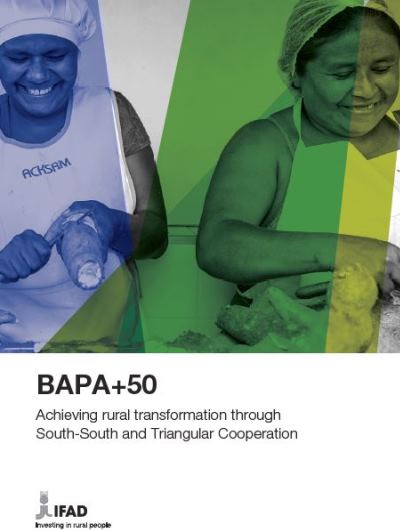BAPA+50 - Achieving rural transformation through South-South and Triangular Cooperation
BAPA+50 - Achieving rural transformation through South-South and Triangular Cooperation
This paper is a contribution to the celebration of the fortieth anniversary of the Buenos Aires Plan of Action for Promoting and Implementing Technical Cooperation among Developing Countries (TCDC) (UN, 1978), which gave birth to what is known today, in the UN system and beyond, as “South-South and Triangular Cooperation" (SSTC).
The “BAPA”, adopted when International Fund for Agricultural Development (IFAD) was just a year old, initiated major changes in the approach to development cooperation by putting much greater emphasis than hitherto on the national and collective self-reliance of developing countries, thereby laying the foundations for a new international economic order.
And indeed, a new economic order is emerging: in 1978, the seven largest economies of the globe (those that formed the G7 group) contributed 62 per cent to the world’s GDP of then US$8.5 trillion; in 2017, the global GDP had grown to US$80.7 trillion, while the share of the G7 member-countries had fallen to 45 per cent (World Bank, 2019). By 2040, the combined GDP of the “emerging 72” (E7) could reach double of that of the G7.
